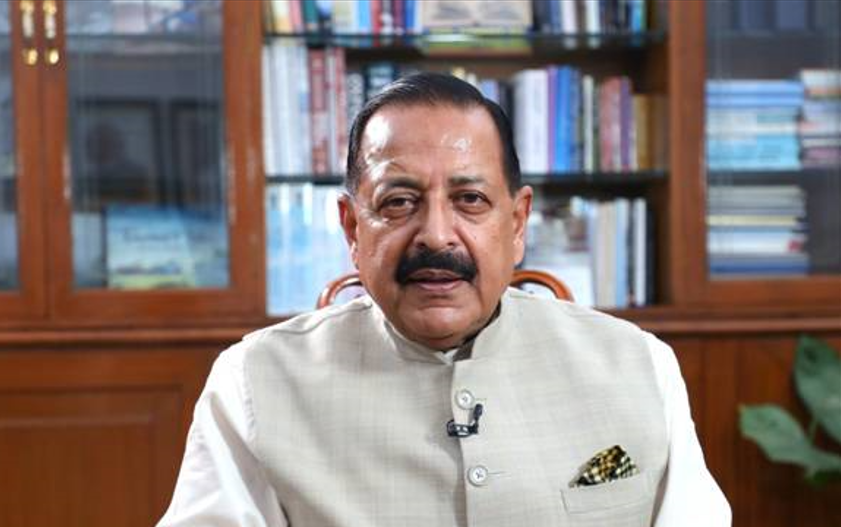In an exclusive interview with Doordarshan News, Union Minister Dr. Jitendra Singh highlighted the sweeping governance reforms and inclusive development initiatives undertaken during the past 11 years of Prime Minister Narendra Modi’s leadership. He described the period as a “transformational decade” that has democratized aspirations and expanded opportunities across regions and sectors.
Democratisation of Civil Services and Aspirations
Singh emphasized that the Civil Services, once dominated by select states like Bihar and Tamil Nadu, now see top performers from previously underrepresented regions such as Jammu & Kashmir, Punjab, and Haryana. Citing examples like Parsanjit Kour from Poonch (AIR 11, 2022) and Anmol Sher Singh Bedi from Punjab (AIR 2, 2016), he hailed this shift as proof of the system’s increasing objectivity and accessibility.
“This is the true essence of democracy—where every mother, regardless of her socio-economic standing, has the confidence to believe her child can reach the top,” he stated.
Start-Up India Reframed Employment Thinking
Singh noted that PM Modi’s 2016 call for “Start-Up India, Stand-Up India” revolutionized the employment landscape. “People realized that jobs don’t just mean Sarkari Naukri—they mean innovation, entrepreneurship, and startups,” he said. He pointed to the biotechnology sector’s exponential growth from just 50 startups in 2014 to over 10,075 in 2024, with a valuation leap from $10 billion to $170 billion.
Integration of Northeast and J&K
Lauding the integration of the Northeast and Jammu & Kashmir into India’s mainstream development, the Minister said regions long isolated now enjoy railway connectivity and are participating in sectors like aviation and hospitality. He recalled the emotional story of young women from Manipur working in airlines—tragically lost in an Ahmedabad air crash—as symbolic of the transformation these regions have undergone.
India’s Ascent in Space and Biotech
Singh reaffirmed India’s rising stature in space and science. He announced that Group Captain Shubhanshu Shukla will serve as the mission pilot on the Axiom-4 mission, conducting biotech experiments using indigenous kits. He added that India is on track to establish its own space station—‘Bharat Antariksh Station’—by 2035.
Revolution in Governance and Service Delivery
Highlighting key governance reforms, Singh said India’s grievance redressal system – Centralized Public Grievance Redress and Monitoring System (CPGRAMS) – has evolved into a global model, handling over 26 lakh grievances in 2024 with a 96% disposal rate—compared to just 2 lakh in 2014.
He also praised the Digital Life Certificate (DLC) system for pensioners, powered by facial recognition technology, which spares elderly citizens from bank visits. Additionally, reforms now allow women officers to nominate parents or children as pension beneficiaries, reflecting a more compassionate system.
Zero-Corruption Record and Cultural Shift
Singh stated that “not a single charge of corruption” has surfaced against any member of the Union Council of Ministers over the past 11 years, contrasting it with previous regimes plagued by scams. He said this clean governance, combined with 100% saturation of schemes like PM Awas Yojana—even in non-traditional voter areas—signals a shift away from vote-bank politics.
J&K Stability and Future Prospects
Addressing the situation in Jammu & Kashmir, the Minister said normalcy has returned, with tourism booming. “Visit Pahalgam today—you’ll find it crowded despite recent incidents,” he said, adding that youth in the region are determined to be part of India’s development journey. He also called the recent discovery of lithium reserves in J&K a potential economic game-changer.
Towards Viksit Bharat 2047
Concluding his remarks, Singh underscored the role of citizens in shaping the nation’s future. “The real driving force behind Viksit Bharat 2047 will be the people of India—their support, aspirations, and participation will define the next 25 years of our journey,” he said.














